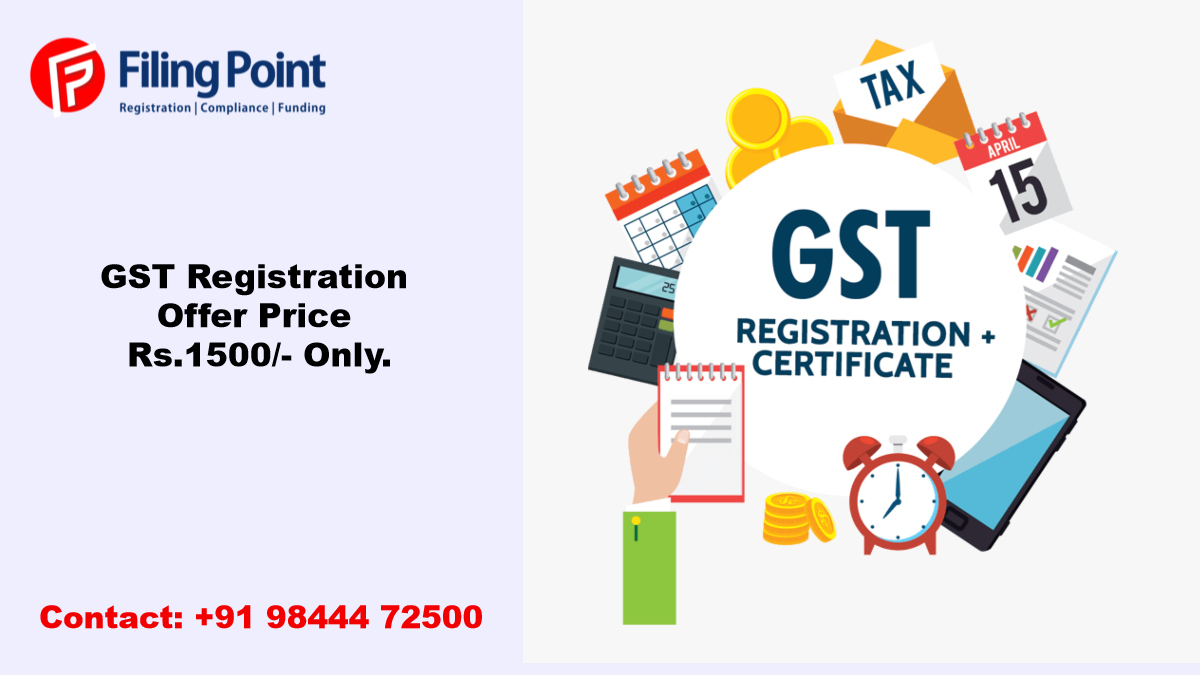Necessary Guide to Singapore GST Registration for New Organizations
Necessary Guide to Singapore GST Registration for New Organizations
Blog Article
The Ultimate Overview to Simplifying the GST Registration Refine and Needs for Local Business Owners

Understanding GST Fundamentals
To understand the basics of the Product and Provider Tax Obligation (GST) system, small service owners should first recognize its underlying concepts and ramifications. Under the GST program, services are needed to accumulate and register tax on behalf of the government, ensuring transparency and conformity.
Among the key concepts of GST is input tax credit score, which permits organizations to declare credit score for taxes paid on their purchases. This system protects against the plunging effect of taxes and advertises efficiency in the tax system. Furthermore, GST is a destination-based tax, implying that the tax obligation is levied at the point of usage instead than the point of beginning. This makes certain reasonable distribution of tax obligation earnings amongst states based on where the solutions or items are eaten. Comprehending these basic principles is critical for local business owners to browse the intricacies of the GST system and guarantee compliance with the legislation.
Qualification Standards for Registration
Having actually developed a fundamental understanding of GST concepts, local business owners should now satisfy certain qualification criteria to continue with the registration process. In India, entities involved in the supply of products or services with an annual aggregate turnover surpassing Rs. 40 lakhs (Rs. 10 lakhs for special category states) are required to register for GST. In addition, particular businesses such as those associated with inter-state supply of items, casual taxed persons, and those called for to pay tax under the reverse fee mechanism must register for GST regardless of their turn over. Services that were signed up under the previous tax program (BARREL, solution tax obligation, etc) are likewise mandated to sign up under GST. Farming services that only provide produce out of primary manufacturing are excluded from GST registration. It is crucial for entrepreneur to meticulously analyze their eligibility based upon these requirements to guarantee compliance with the regulation and stay clear of any type of charges for non-compliance.
Documents Required for GST Enrollment

Simplified Enrollment Refine Actions
Adhering to the collection and confirmation of the requisite records, the registration procedure for GST can be navigated via a series of simplified actions designed to facilitate effective conformity for small business proprietors. The primary step entails going to the GST website and picking the 'New Enrollment' option. Ultimately, the applicant must fill out Part A of the GST REG-01 kind with details such as PAN, mobile number, and e-mail address to obtain an OTP for confirmation. Once the OTP is gotten and gotten in, a Short-lived Reference Number (TRN) is created for further procedures. The following action requires submitting Component B of the form with essential service details, submitting supporting records, and finishing the verification procedure using DSC or EVC. Finally, upon successful confirmation, an Application Reference Number (ARN) is provided, suggesting the conclusion of the GST registration process. By adhering to these streamlined steps, local business websites proprietors can effectively sign up for GST and ensure conformity with tax obligation regulations.
Tips for Ensuring Conformity
To preserve regulative adherence and functional integrity, attentive oversight and positive measures are pivotal in ensuring conformity with GST requirements for local business proprietors. Local business proprietors should remain updated with GST policies, submitting target dates, and any kind of modifications in tax rates to stay clear of penalties and keep an excellent standing with tax authorities. One important tip for conformity is to keep accurate and comprehensive records of all deals, including expenses, billings, and invoices associated with GST. Consistently resolving financial records with GST returns can help in recognizing and correcting any kind of disparities quickly. Additionally, performing regular internal audits or looking for specialist aid can guarantee that business is following all GST rules correctly. It is likewise essential for small organization owners to buy GST-compliant accountancy software program that can simplify the tax obligation filing procedure and lessen errors. Attending GST awareness workshops or training programs can enhance understanding and compliance with GST guidelines, eventually profiting the organization in the lengthy run.
Conclusion
In final thought, small company proprietors need to comprehend the fundamentals of GST, satisfy the qualification criteria, gather required documents, and follow the streamlined enrollment procedure steps to make certain conformity. By streamlining the GST enrollment procedure and needs, local business owners can avoid fines and operate their services smoothly within the lawful structure - Singapore GST Registration. It is important for local business proprietors to stay certified and informed with GST guidelines to maintain an effective service procedure
Tiny organization owners seeking GST registration should guarantee they gather and send the required documents to complete the registration process efficiently. The documents needed for GST registration commonly include proof of business enrollment or unification, FRYING PAN (Long-term Account Number) card of the organization address, entity and identity evidence of the promoters/partners/directors, pictures, address evidence of the area of business, financial institution account declarations or canceled cheques, and authorization types. Attending GST awareness workshops or training programs can boost understanding and compliance with GST policies, eventually profiting the company in the long run.
By simplifying the GST enrollment process and needs, tiny business owners can prevent charges and operate their organizations smoothly within the lawful framework. It is critical for tiny business proprietors to stay enlightened and compliant with GST guidelines to keep an effective company operation.
Report this page